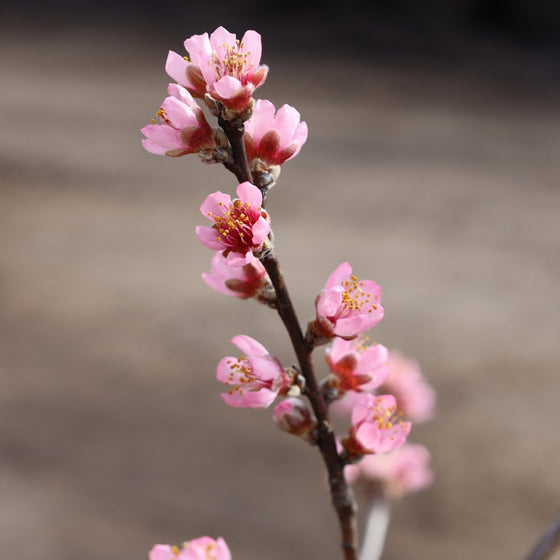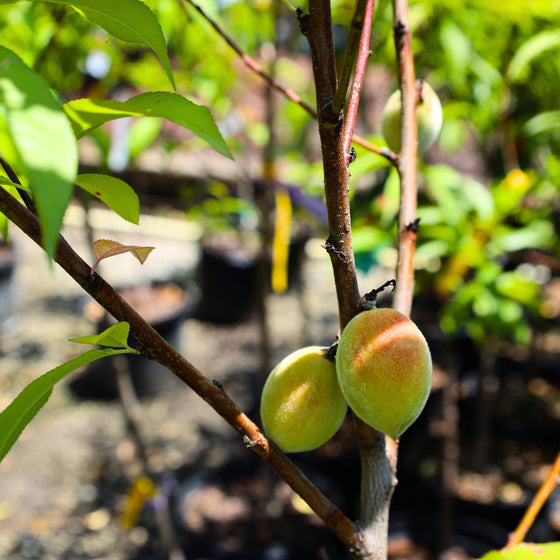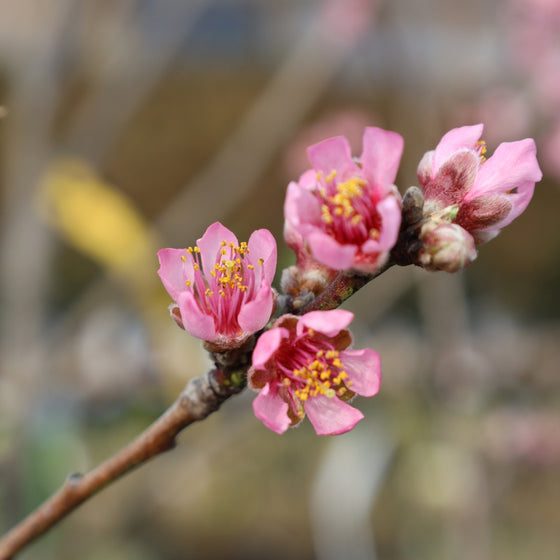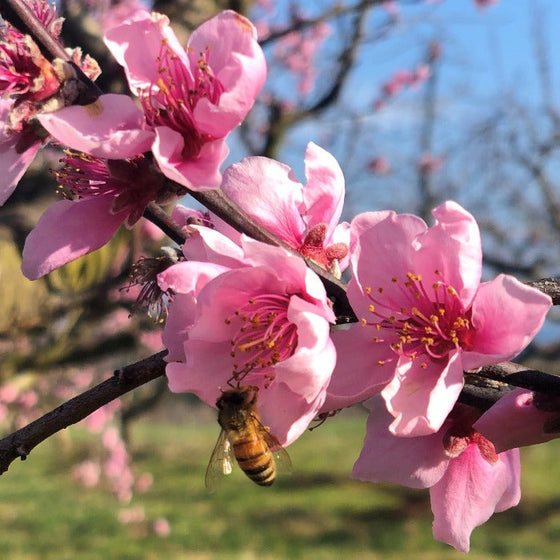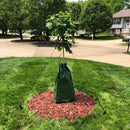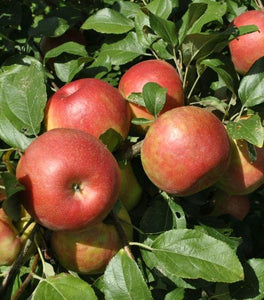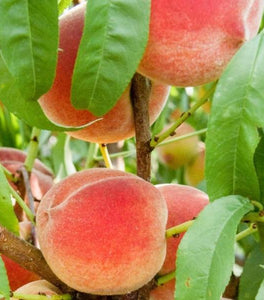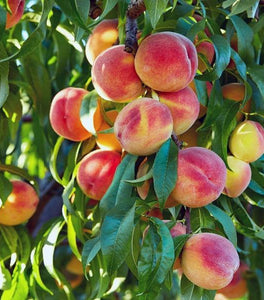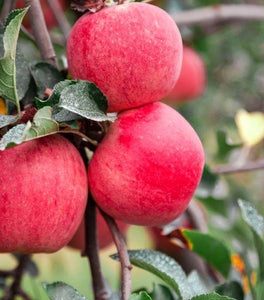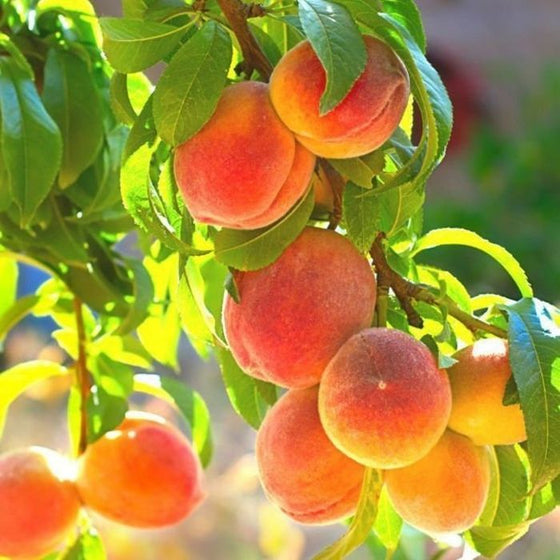
Images Depict Mature Plants
Belle of Georgia Peach Trees for Sale Online
The Belle of Georgia Peach Trees is more than just a fruit-producing tree - this southern belle proves that edibles can be ornamental and delicious! Imagine having a tree that produces wonderfully scented flowers in the spring but gives you sweet delicious fruit in late summer. With their pleasing color and delicate scent, the flowers are a draw to butterflies and other pollinators. If you love peaches but only have room for one tree this self-pollinating tree is the one for you!
The Belle of Georgia peach is a delicious white peach that is perfect for colder areas of the country. Belle of Georgia peaches will begin to ripen in mid-August just in time for mid-summer picnics.
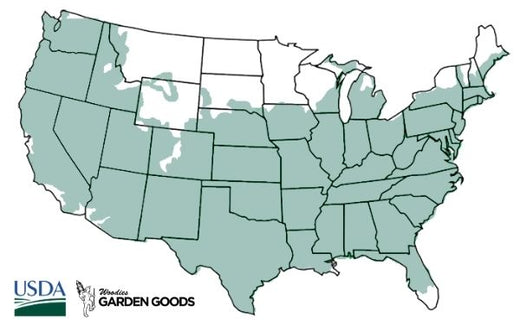
| Hardiness Zone: | 5-9 |
|---|---|
| Mature Height: | 20 to 25 feet |
| Mature Width: | 15 to 20 feet |
| Classification: | Broad leaved deciduous tree, spring flowering |
| Sunlight: | Full sun |
| Habit: | Spreading, umbrella shaped canopy |
| Foliage: | Dark green |
| Fruit Color: | Red with yellow highlights |
| Pruning Season: | Late winter |
| Soil Condition: | Any well drained soil |
| Water Requirement: | Water well until established |
| Uses: | One of the best peaches for eating fresh or storing |
How to Care for Belle of Georgia Peach Tree
Before you buy a Belle of Georgia Peach Tree, make sure to read about the recommended care instructions to keep this plant healthy and thriving.
How do I plant a Belle of Georgia?
We suggest when planting your new Belle of Georgia Peach Tree that you dig a hole twice as wide as the root system but not deeper. You may need to add a locally sourced compost or topsoil to the back-fill soil to help condition the soil with more nutrients. We do not recommend using straight topsoil or compost as a back-fill soil because more times than not these products will retain entirely to much moisture and will cause the root system to rot. Conditioning and amending the soil when planting means that the young feeder roots of your peach tree will have the freedom to extend and grow into their new home. The most common cause of plant death after transplanting is planting the new plant to deep. That is why we do not recommend planting in a hole any deeper than the soil line of the plant in the pot. You should still be able to see the soil the plant was grown in after back-filling the hole.
How often do I water my peach tree?
After carefully planting your new tree, give the Belle of Georgia Peach Tree a good, deep first watering. Take your time when watering a plant that is still establishing its root system in its new home. Most of the water you put on the plant at first will run away from the plant until the soil is soaked. Count to 5 for each gallon of pot size - a one gallon pot would be watered until you count to 5, a three gallon pot would be 15 and so on. Water using the counting method every day for the first week, then ever few days for the first 4 to 6 weeks. Gator Bags are a good investment that will help minimize the chore that careful watering can be.
How much Fertilizer does an Belle of Georgia Peach Tree require?
Trees such as Belle of Georgia Peach Tree grow best if they are fertilized lightly in the spring once frost has passed with a well-balanced, extended-release, fertilizer such as Espoma Tree-Tone. Then, you can fertilize your Belle of Georgia Peach Trees again 6 to 8 weeks later to encourage denser foliage or faster growth of young trees. We recommend using a Bio-Tone starting fertilizer when planting. In an ideal world, we think you should use an organic method of applying manure and/or compost around the roots. This produces excellent results and also improves the condition of the soil. Organic additions to the soil can also be combined with a shot of chemical fertilizer for maximum tree nutrition.
What type of mulch does a Belle of Georgia Peach Tree require?
We highly recommend that you mulch your Belle of Georgia Peach Tree with either a ground hardwood or cypress mulch, depending on what is available. Any type of mulch will do but these kinds will provide better nutrition overall as they breakdown. Mulching helps block the weeds which will compete with your new investment for water and nutrients. A 2 to 3 inch layer of mulch is sufficient. It is better to leave a one inch gap of space between the mulch and the stem or trunk of the plant.

